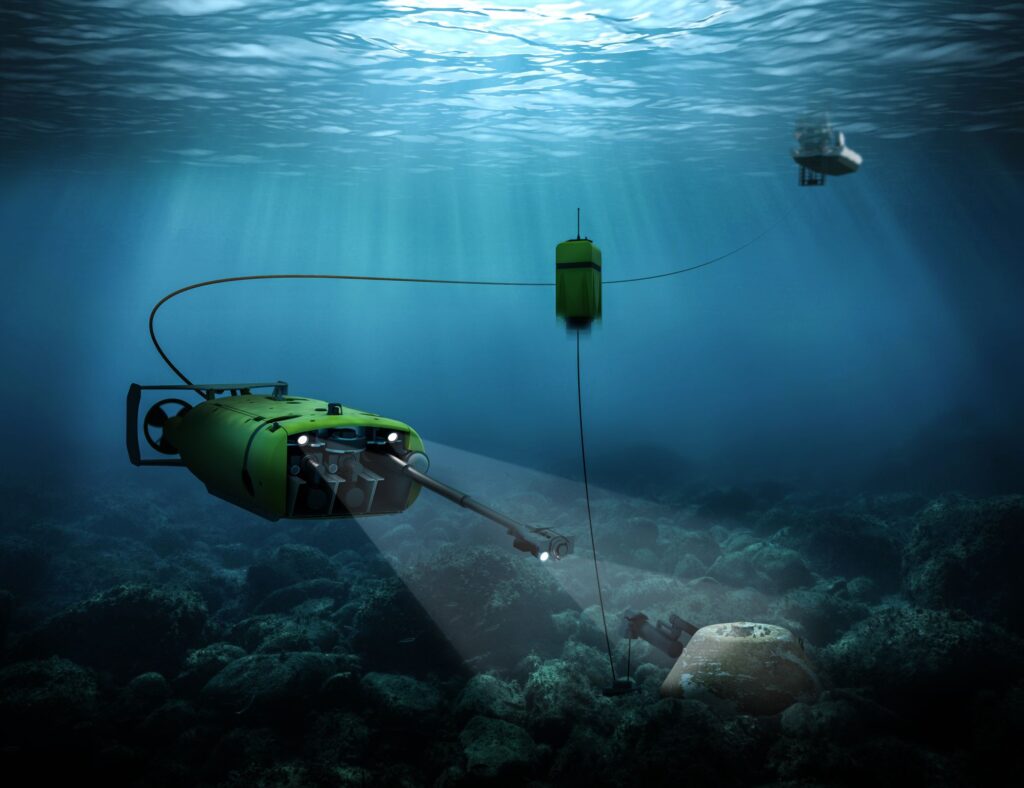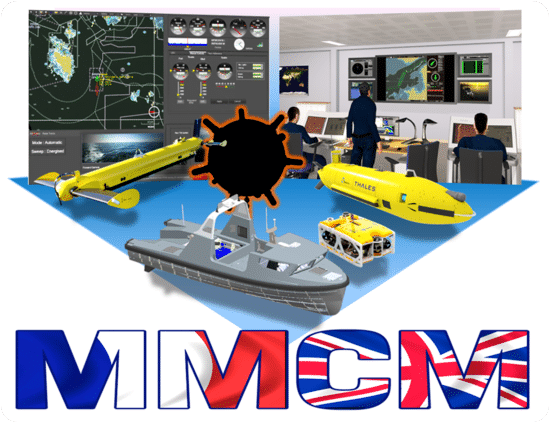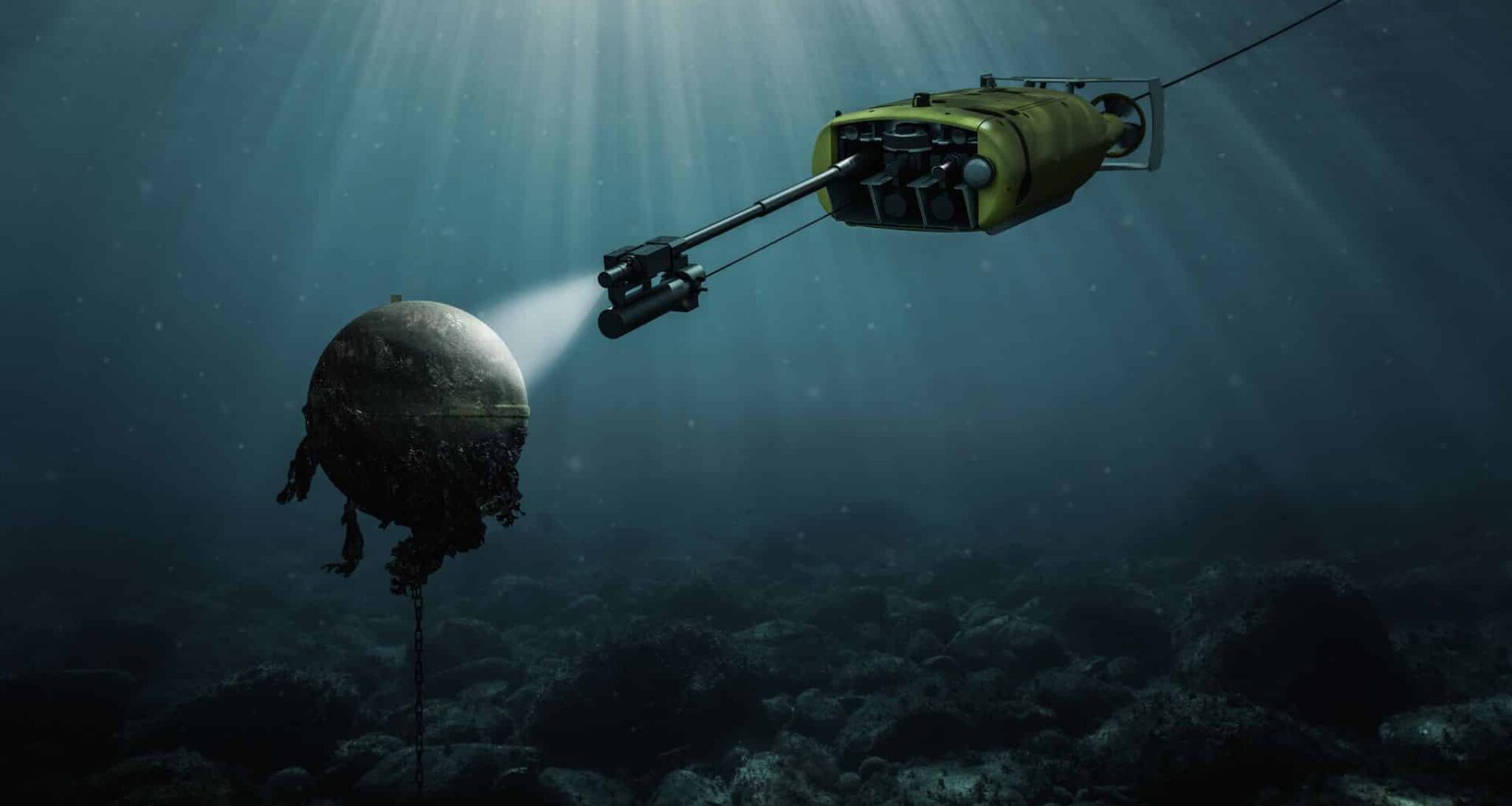Coinciding with the first autonomous MMCM Primary System delivery by OCCAR (Organisation for Joint Armament Co-operation) to the United Kingdom , munition from the MMCM mine hunting programme was successfully fired at the Swedish Test Centre (FMV) in Motala Lake.
OCCAR press release
The aim of the testing exercise was to have a high visibility demonstration event that would reassure OCCAR customer nations, France and UK, of the progress made of the Neutralisation process that will be delivered for the Final Operational Capability of MMCM.
The munition was attached to an ad-hoc target by a tele-operated underwater Remotely Operated Vehicle ROV in accordance with the MMCM Neutralisation Concept of Use. It also demonstrates the cutting-edge end-to-end concept “man away from the menace” that will become a reality thanks to MMCM.
This successful trial, demonstrating the excellent cooperation between Thales (prime contractor), Saab (sub-contractor in charge of the (ROV) and Mine Neutralisation System (MNS) and OCCAR, was carried out with the presence of French and British customers (DGA – Direction générale de l’armement and Defence Equipment & Support (DE&S) and final clients Marine Nationale National and Royal Navy). It was the first live firing exercise performed in a real “operational like” environment.

Credit: OCCAr
On 25 March, 2025, the munition successfully passed two major milestones namely the Critical Design Review (CDR) and Test Readiness Review (TRR) allowing the MNS to start its qualification phase.
MMCM (Maritime Mine Counter Measure) is the world’s first autonomous mine hunting system. After threat detection and localisation, the ROV’s aim is to identify and then neutralise the mine with the MNS (munition).
About MMCM (Maritime Mine Counter Measures)

OCCAR image
France and the United Kingdom initiated a programme to assess and develop a “Maritime Mine Counter Measures” (MMCM) capability comprising unmanned systems operating remotely, at a stand-off distance from mother ships or, through a command and control centre, either on board ship or deployed ashore.
The objective of the MMCM programme is to deliver an agile, interoperable and robust MMCM capability. The programme will help to determine the options for replacing existing Mine Counter Measure Vessels when they retire from service and the life-cycle cost benefits of delivering mine counter measure capability in a new way.
Its stand-off concept is based on off-board capabilities aimed at keeping personnel outside minefields whenever possible. By defeating static underwater threats at pace, these systems will give strategic, operational and tactical freedom of manoeuvre and thereby assure the delivery of maritime force projection and maritime security at the time and place of the Nations’ choosing in support of a wide range of naval operations.
This bi-lateral programme was formally initiated under the Lancaster House Treaties between France and the United Kingdom in late 2010. In March 2015, OCCAR awarded a demonstration phase contract following a competitive tendering exercise. The contract was originally structured with:
- A firm tranche for Stage 1 (Study, Definition and Design Stage).
- Firm prices for two optional tranches (OTs):
- OT1 for Stage 2 (Manufacture of two systems) and Stage 3 (Qualification);
- OT2 for Stage 4 (for Support to Evaluation).
On 20 October 2016, the contract to proceed with Stages 2 and 3 was jointly announced by the United Kingdom and France. The announcement followed the successful completion of a 15 month-long study, definition and design stage. Stages 2 and 3 of the MMCM programme is the manufacture and qualification of two identical MMCM prototype/demonstrators. These autonomous off-board unmanned systems, deployed from the shore or at a stand-off distance from mother ships, will enable the detection and neutralisation of sea mines and underwater explosive devices. The MMCM programme also includes a stage 4 option for a two-year period of support for evaluation of the systems by the Marine nationale and Royal Navy.
At the France/United Kingdom Summit in January 2018, the French President and the Prime Minister of the United Kingdom stated their intention to bring the system into operational service rapidly. The subsequent production stage (known as Stage II) has progressed rapidly and the formal ProgD and subsequent contract for both France and United Kingdom was signed in October 2020.
Stage II includes common and non-common development activities, manufacture of multiple systems, the delivery of a shore operation and training centre and includes various costed contractual options including In-Service Support (ISS).
